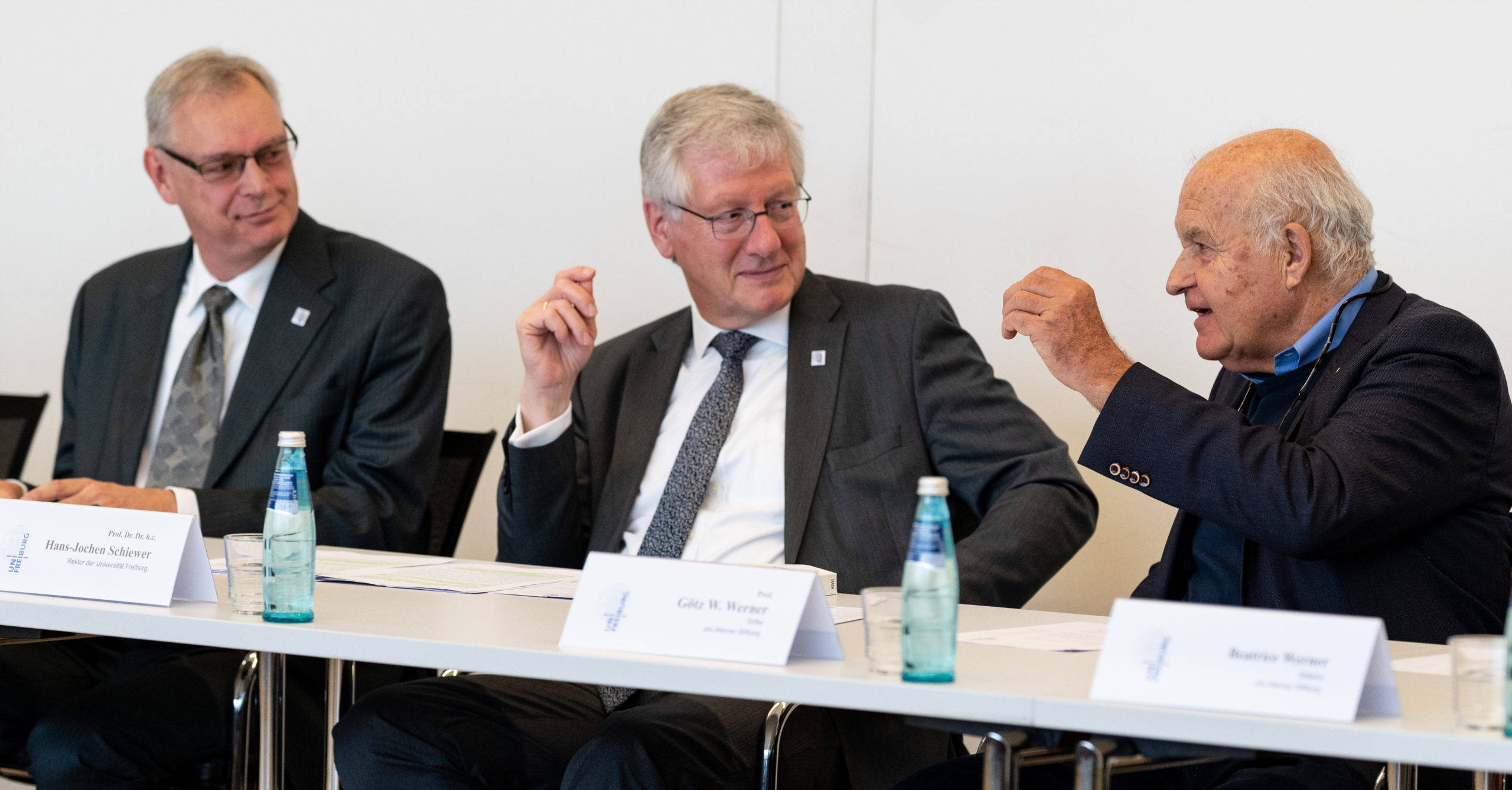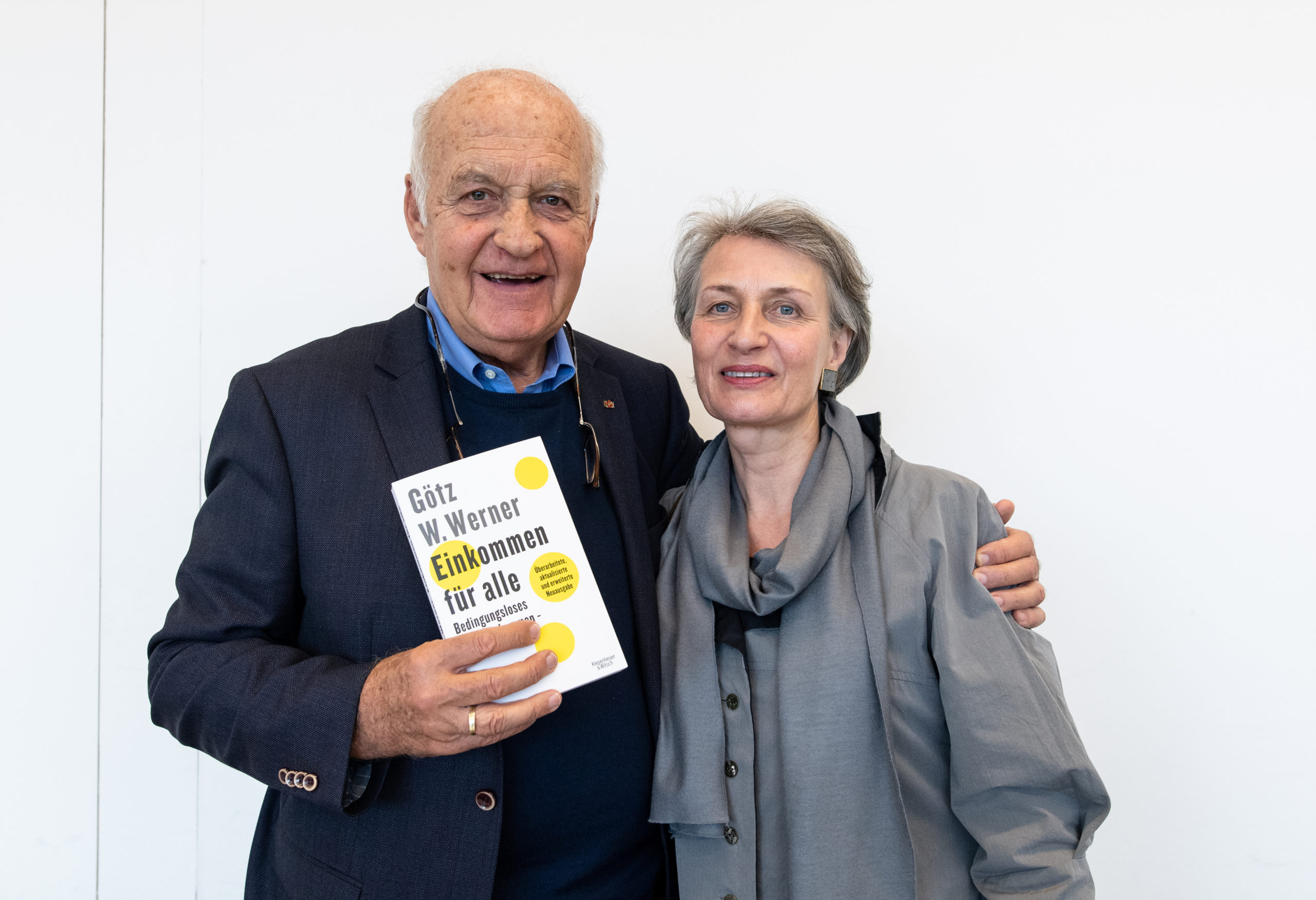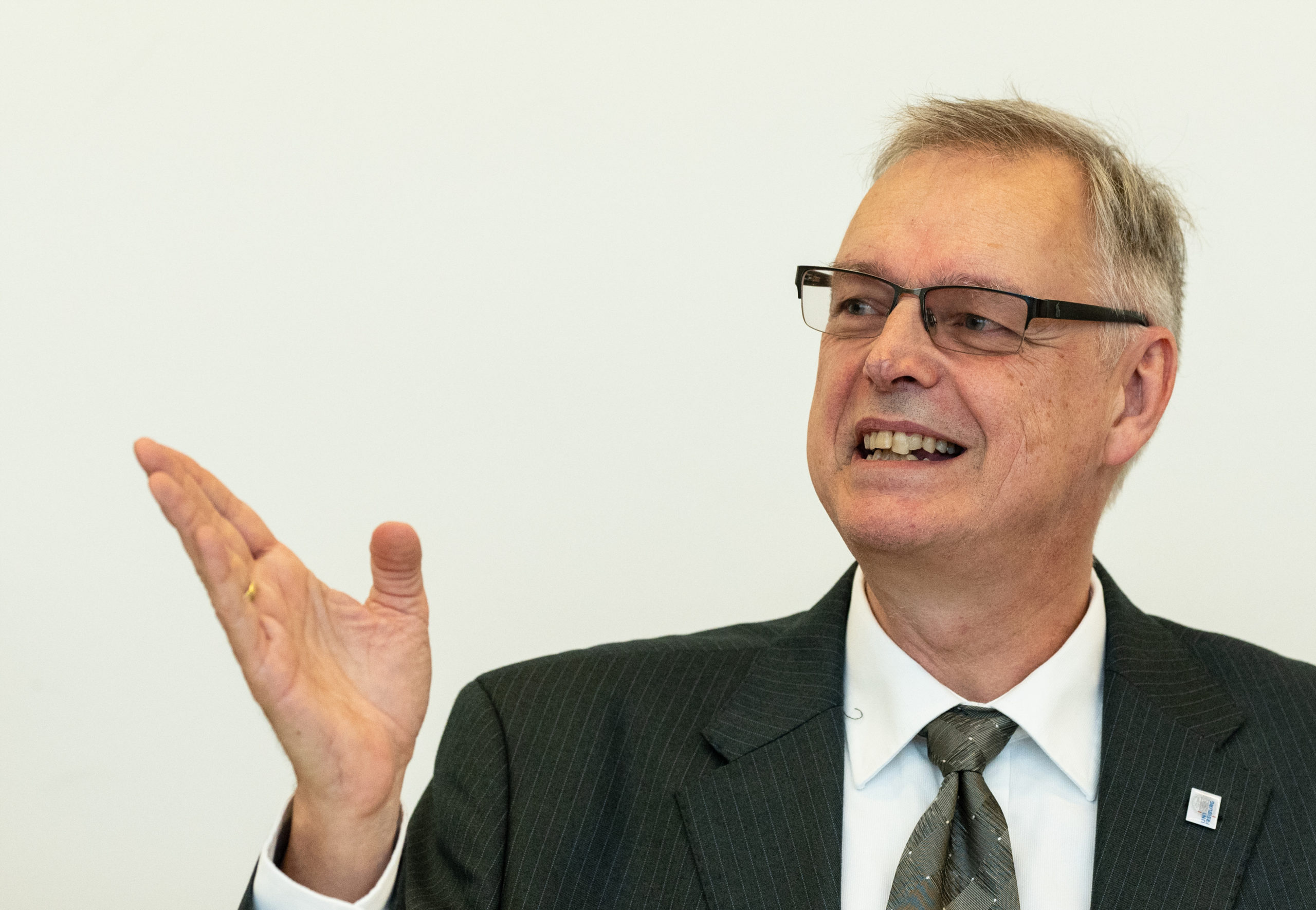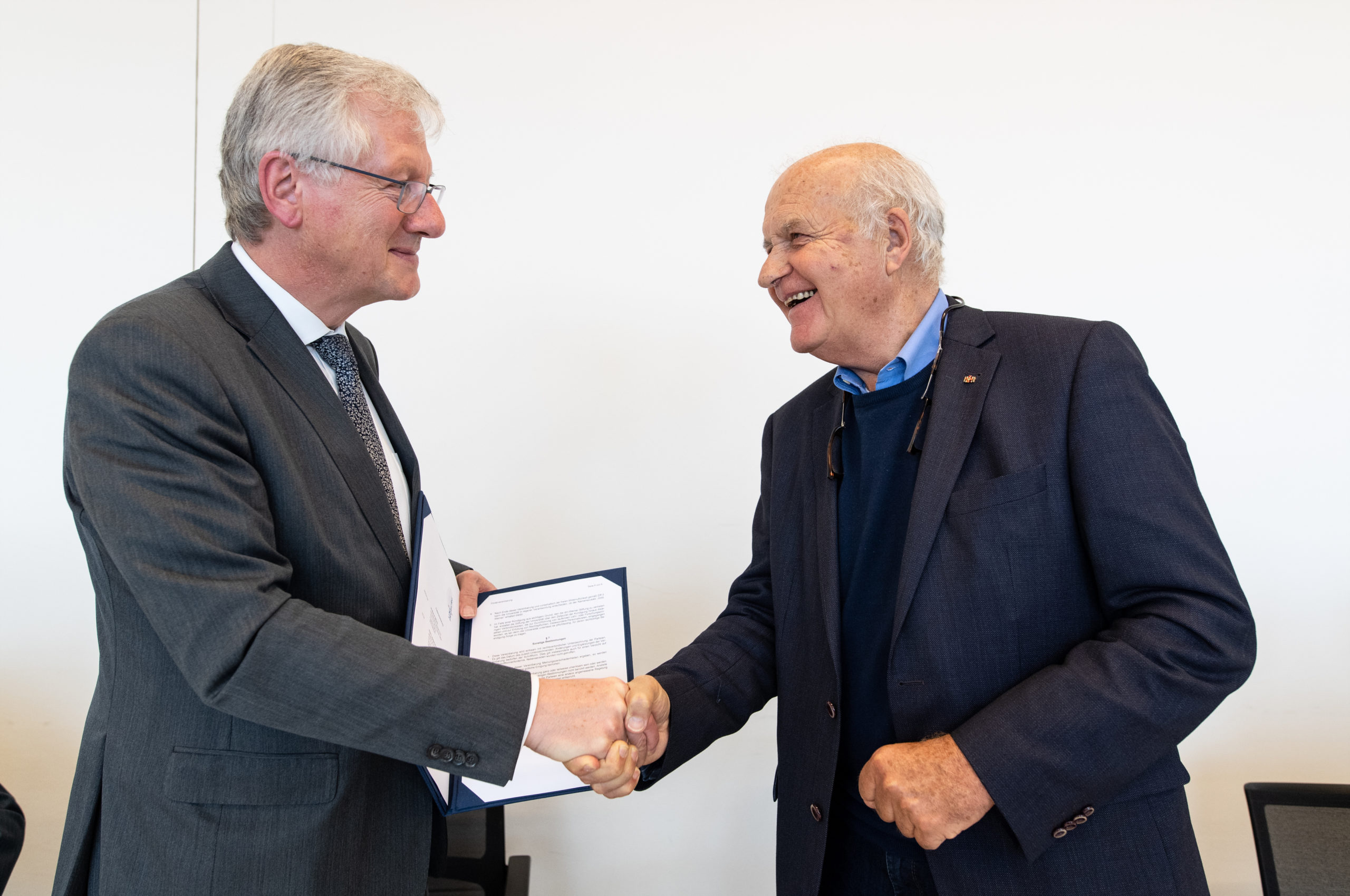The signing ceremony of the Götz Werner Chair for Economic Policy and Constitutional Economic Theory took place on May 21th, 2019, in the Rectorate Building of the University of Freiburg. The Chair is held by Prof. Dr. Bernhard Neumärker, Director of the Department of Economic Policy and Constitutional Economic Theory at the University of Freiburg.
Prof. Dr. Dr. Hans-Jochen Schiewer, Rector of the University of Freiburg, said in his speech:
“No other entrepreneur in Germany has thought of the unconditional basic income as consistently and as emphatically as Götz Werner. It is in the tradition of Ordoliberalism, the Freiburg School of Economics, to develop a regulatory framework for this model: Its founder Walter Eucken saw the main task of economic and social policy as the establishment of a ‘functional, lasting and humane order’ of economy and society. We are therefore very pleased and grateful in view of the great opportunity that the dm Foundation offers us to use its help to make further groundbreaking research contributions to the question of how economically and socially sustainable coexistence can be organized for all people”.
Prof. Götz W. Werner, founder of dm-drogerie markt, emphasized: “Our world of work has changed fundamentally in the last ten or fifteen years. In order to master the challenges of the future, we must separate work and income and recognize work as a creative activity. The Archimedean point is the idea of an unconditional basic income. Research at the University of Freiburg will provide decisive scientific and socio-political impulses for the introduction of an unconditional basic income”.
Prof. Dr. Bernhard Neumärker mentioned: “The Basic Income opens up an enormous field of activity for a ‘New Ordoliberalism’, which questions the one-sided orientation towards gainful employment and the competitive economy, which characterizes the currently dominant economic liberalism, and instead focuses much more on creative and recreational leisure, unpaid work – e.g. caring for relatives – and the sense of community service”.





